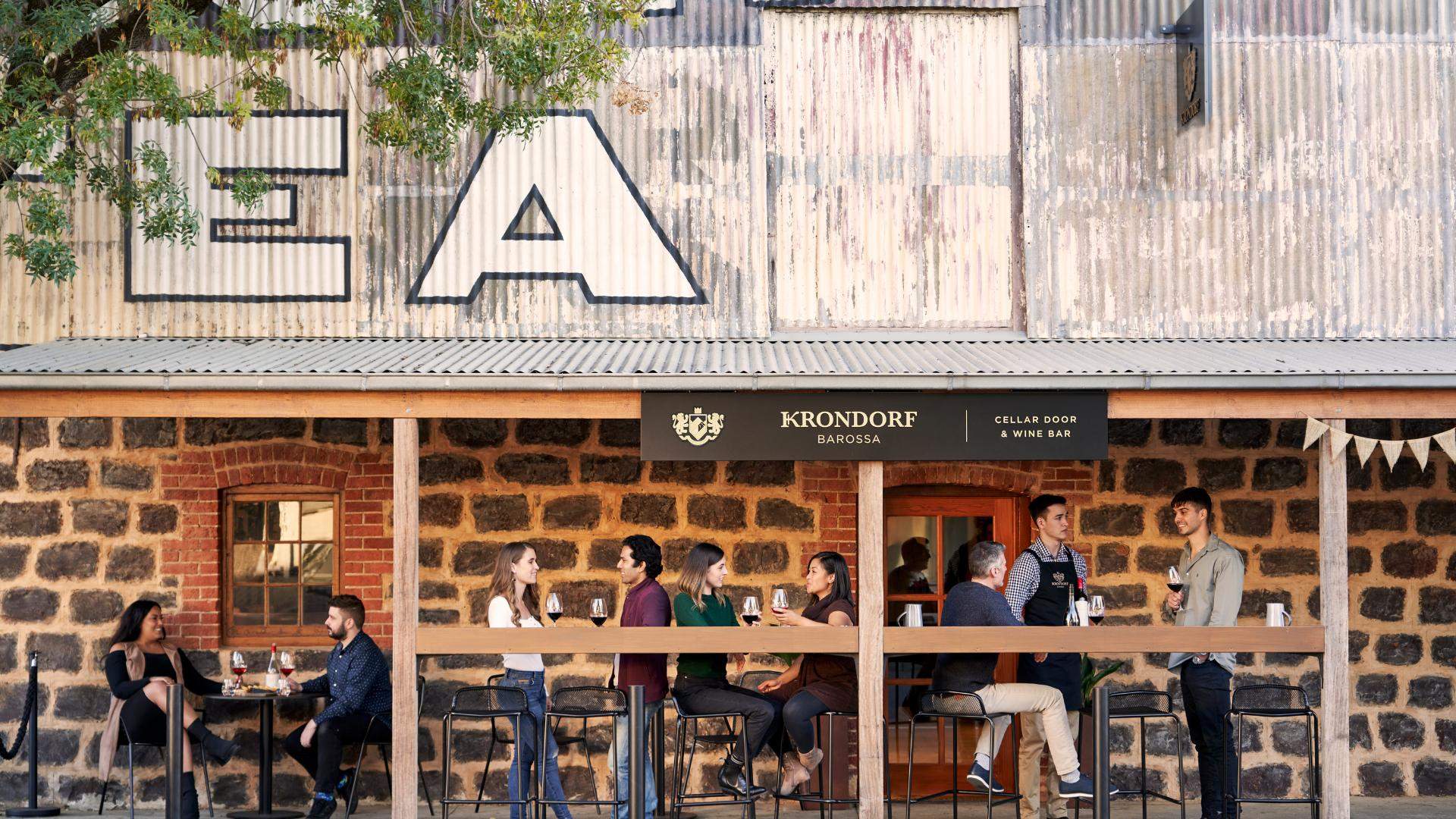Traditional Vino in a Modern Venue: Nick Badrice of Krondorf Wines on the History, Flavours and Future of the Barossa
Krondorf winery is one of the famed region's producers of exceptional Barossa shiraz with a focus on sophistication without the stuffiness.
In partnership with
If there's one region that put the Australian wine industry on the world wine map, it's the Barossa. Its signature style of bold, juicy, and age-worthy red wines has stunned wine critics, experts and novices worldwide. You can't get shiraz like a Barossa shiraz anywhere else.
One wine brand that is spruiking its prestige in the region is Krondorf Wines. We chatted with Krondorf's head winemaker and Barossan native, Nick Badrice, about the brand and what makes the Barossa region so special.

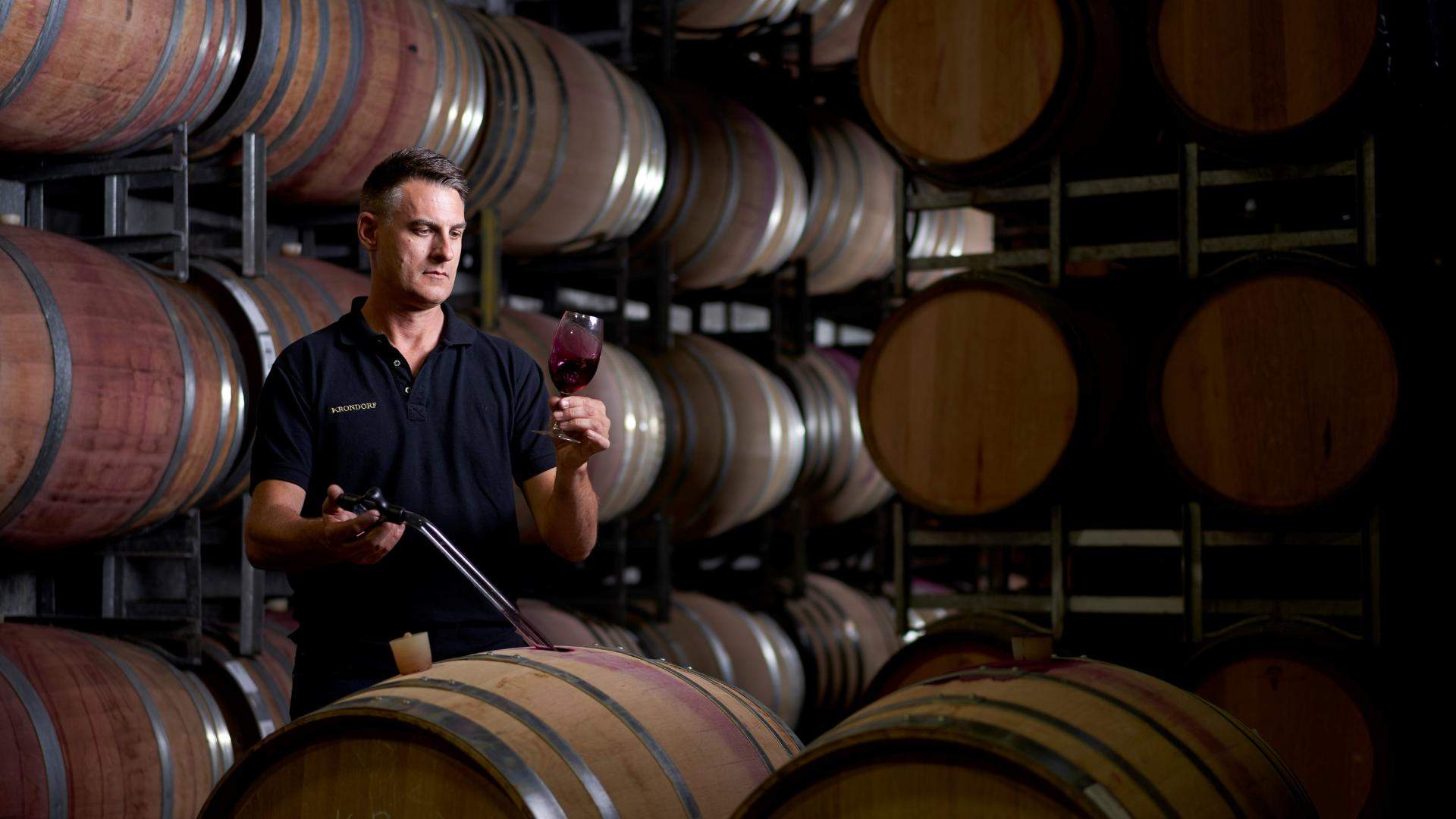
Tell us a little about yourself and your time at Krondorf Wines.
I grew up in the Barossa Valley, so it was natural that I was immersed in the wine industry from a young age. This [current] vintage will see me having completed 35 vintages. I have made wines from many of Australia's premium wine-growing regions including Tasmania, Yarra Valley, Eden Valley and the Barossa Valley. But I also spent several vintages working overseas in Spain making wines from the region's extremely old grenache and tempranillo bush vines. I drive my knowledge and experience from this time to fuel my passion for producing super premium wines under the Krondorf label, using fruit from some of the Barossa Valley's oldest vines.
As a native Barossan, do you think wine runs in your veins or is it less nature and more a case of nurture that led you to join the industry?
My father and grandfather both worked in the wine industry which led me to do a vintage. My aim was to earn some money to be able to travel overseas, but this didn't go as planned. I ended up loving it — and here we are now.
What, in your opinion, sets the Australian wine industry apart from the old-world wine regions of Europe and the new-world wine regions of the Americas and South Africa?
The Australian wine industry is always pushing the boundaries to try new things and advance ourselves. Whether it's technology, winemaking techniques, advancements in equipment, or viticulture [grape-growing], we are continually striving to be at the forefront of the industry.
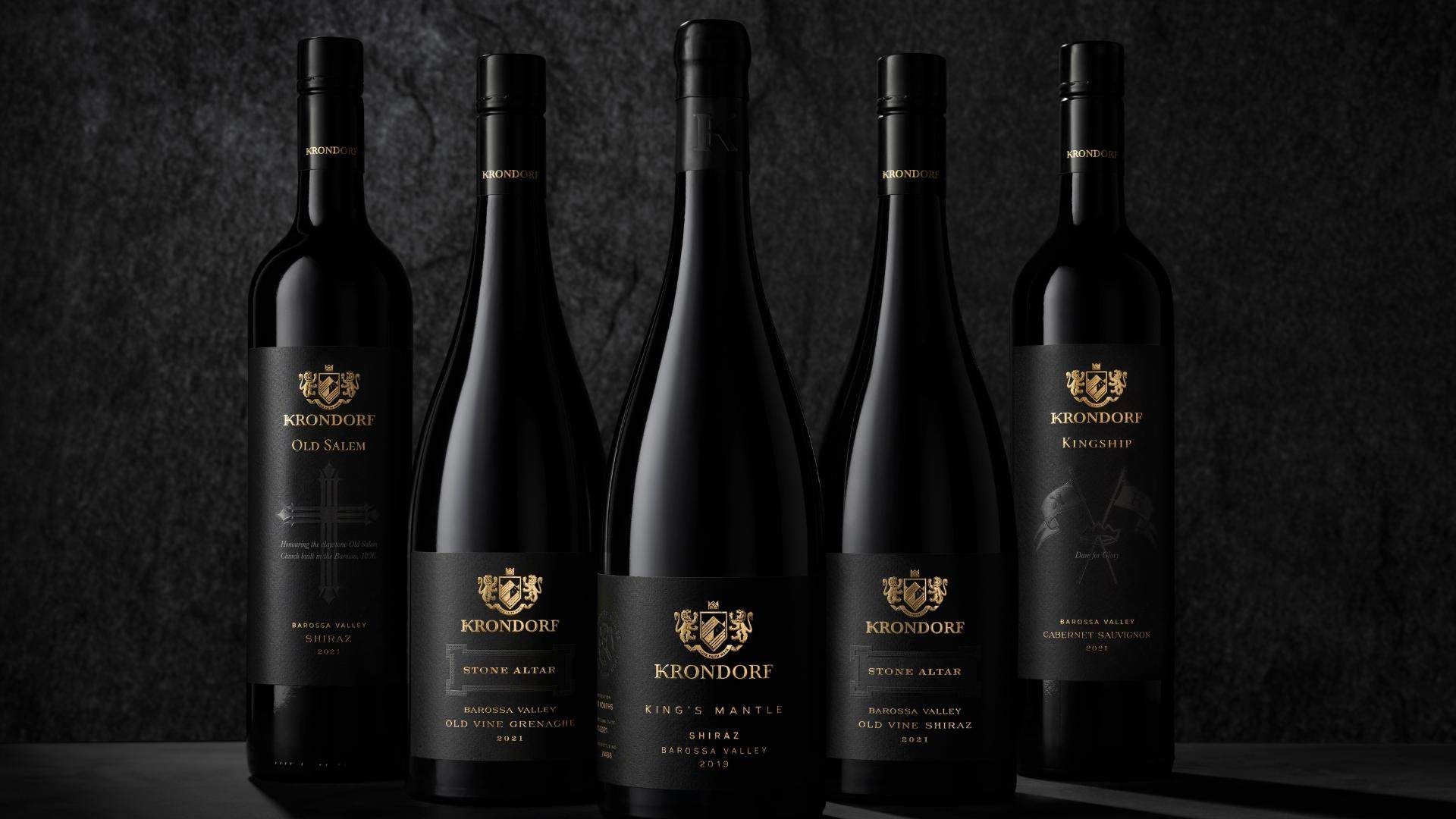
The history of the Barossa Valley extends back almost two hundred years and includes the oldest vines in the world — do you think it was always destined to be a wine country, or was it purely chance that led those settlers there?
The Silesians [people of Central Europe] who first settled the Barossa in the 1840s practised diversified farming. This includes farming livestock, growing crops, maintaining fruit orchids and small vine gardens. After the first few years, they discovered the grape vines doing particularly well on the fertile soils of the Barossa, which led to further plantings. So, what was once a 'cottage industry' is now recognised as a region that produces some of the most sought-after wines in the world.
What makes the region such a perfect spot for this red variety?
The Barossa has a warm climate that experiences cool, wet winters and warm, dry summers with low humidity and plenty of sunshine. This combination of dry, sunny days broken by short spells of rainfall creates an uninterrupted ripening period, which allows the grapes to achieve optimum ripeness. It's ideal conditions for full-bodied red wines with exceptional depth, flavour and richness, such as shiraz, cabernet sauvignon and grenache.
What time of the year does the region really shine?
As a winemaker, harvest time is always the most exciting — the anticipation of the new vintage and the opportunity to create new wines is super exhilarating. The Barossa comes alive during this time. The community also comes together for the bi-annual Vintage Festival, which is a major drawcard for tourists coming to the area during the harvest season.
If a complete wine rookie were to ask you 'why should I choose to buy Krondorf?' what would you tell them?
Krondorf's winemaking approach is one of minimalism. We use traditional techniques to create wines that showcase the terroir of the wine — the characteristics of the soil type and microclimate of the sites on which the grapes are grown. The range includes super-expressive wines, some of which are made from the oldest vineyards in the region. The Krondorf Kings Mantle Shiraz is the icon shiraz in our range — it's the epitome of Barossa shiraz.
What's your recommended care plan to get the best glass out of a bottle of Krondorf shiraz? Do you recommend cellaring or are your wines drinkable now?
The Krondorf range includes wines that are delicate, highly fragrant and medium-bodied and made to be drinkable now, and those that are made to be cellared. These wines are typically full-bodied and have amazing richness, concentration, depth of flavour and structure, which will only get better with time. I would recommend carefully cellaring these wines which means storing them somewhere that sits between 12-14 degrees Celsius, with no light and has minimal changes in temperature. A seldom-used wardrobe or cupboard is better than the top of your fridge.
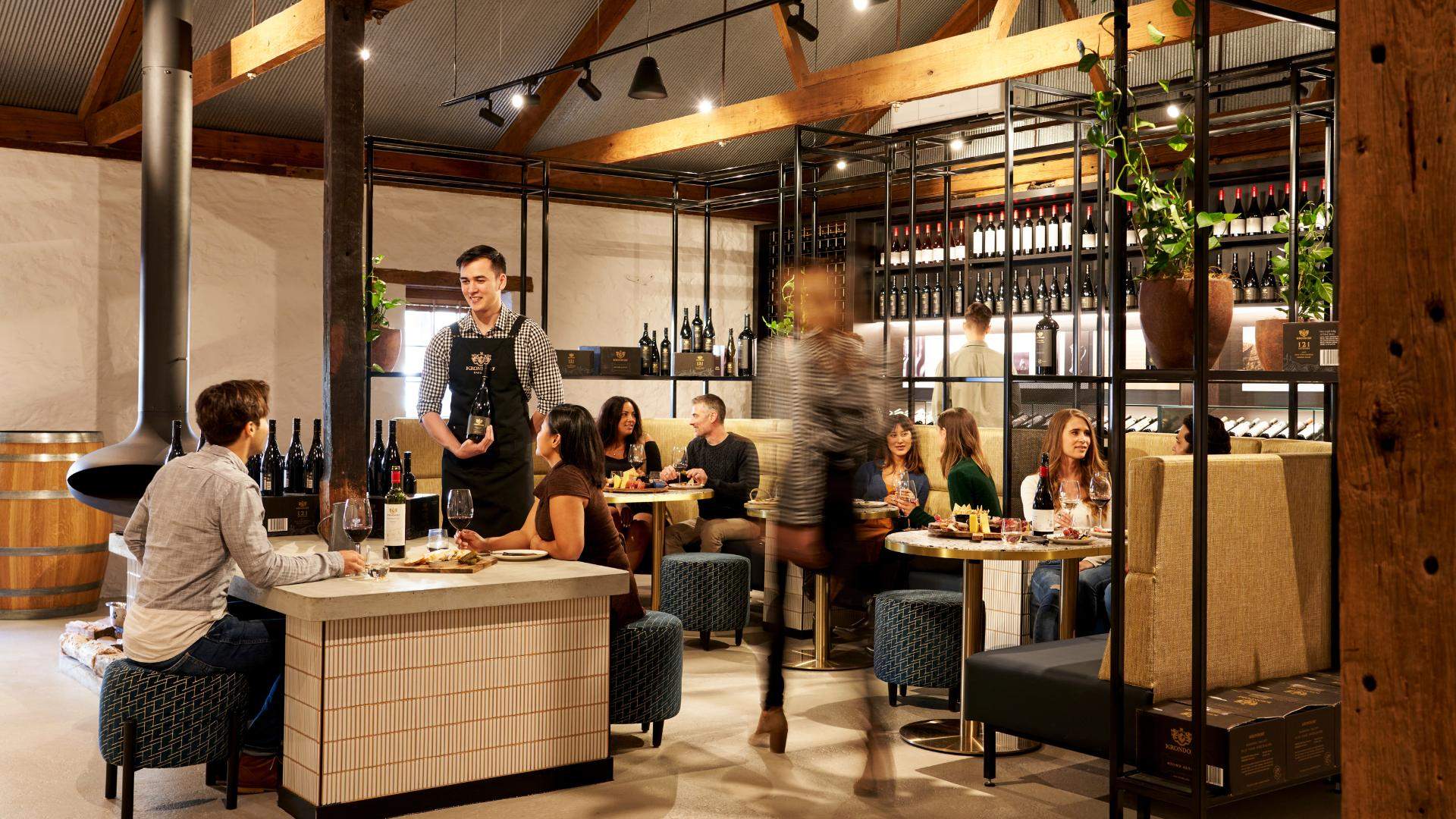
Krondorf recently opened a cellar door; what experiences does that offer visitors?
The cellar door is located in the township of Tanunda and delivers a high-end, relaxed atmosphere without the stuffiness that can sometimes come along at certain wine tastings. At the cellar door we share a range of sub-regional wines from individual vineyard sites at our masterclass tastings, where the wines are matched with local, regional produce. We immerse our guests in the history of Krondorf and the lives of the early Silesian settlers to the Barossa.
What are some local spots in the region for first-time visitors to check out?
The Barossa is steeped in history and has so many amazing historical destinations for visitors to experience. My personal recommendation is to visit the historic village of Seppeltsfield, it has an excellent spectacle of palm trees that line the roads and is a must-see. The historic Seppeltsfield winery offers wine tastings, a restaurant and specialty shops, plus it's surrounded by gorgeous gardens. Obviously, the other place I'd recommend for visitors to relax and enjoy a drink is the Krondorf Wines cellar door.
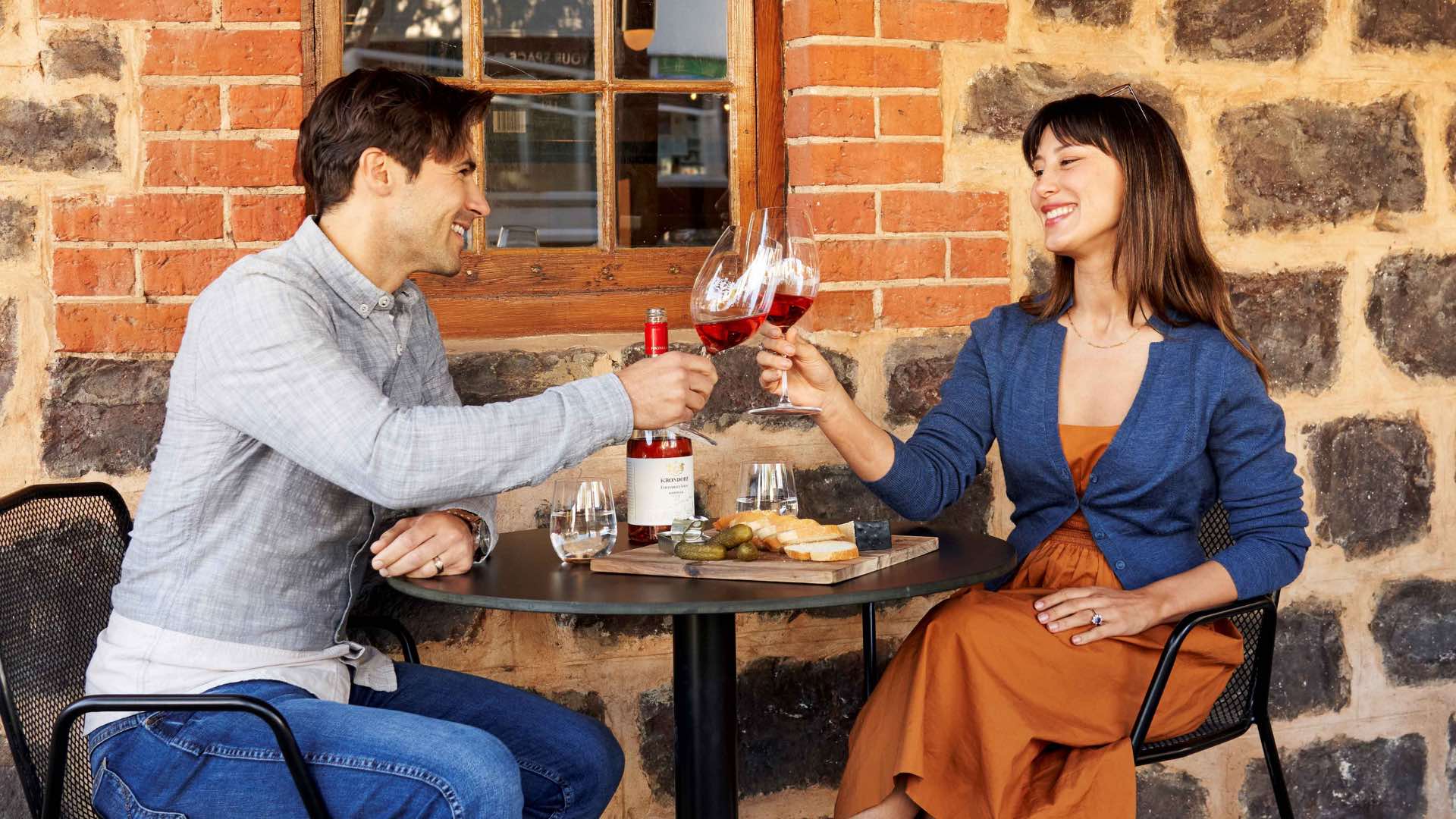
Be honest: when you go out for dinner, do you order wine, or do you like to keep your work life out of your personal time?
Whenever I'm out to dinner, I always like to check the wine list out of curiosity to see what's on offer. There's often a wine I'd like to drink. As a winemaker, there is always something new to experience, whether it be Australian or international.
How do you go about pairing wines? Are you a classic red wine and steak person, or do you have any unusual pairings up your sleeve that always work?
To be honest, I don't have any rules here. It's all about experimenting and discovering what does or doesn't work for you. My personal favourite is Barossa grenache matched with fried pig's ears and spicy Sichuan sauce.
What's exciting you about the wine industry right now?
At Krondorf, we are always looking for better ways to combat climate change and lessen our carbon footprint, it's an important part of our brand's future. We're in the process of transitioning several of our vineyards to organic farming and certification. Our customers are searching for high-quality organic and biodynamic wines, and we want to meet that demand. Plus, increasing sustainable agricultural practices is key to the future of the Australian wine industry.

Discover Krondorf Wines and its story at its cellar door in the township of Tanunda in the heart of the Barossa. Book a tasting on the website.
